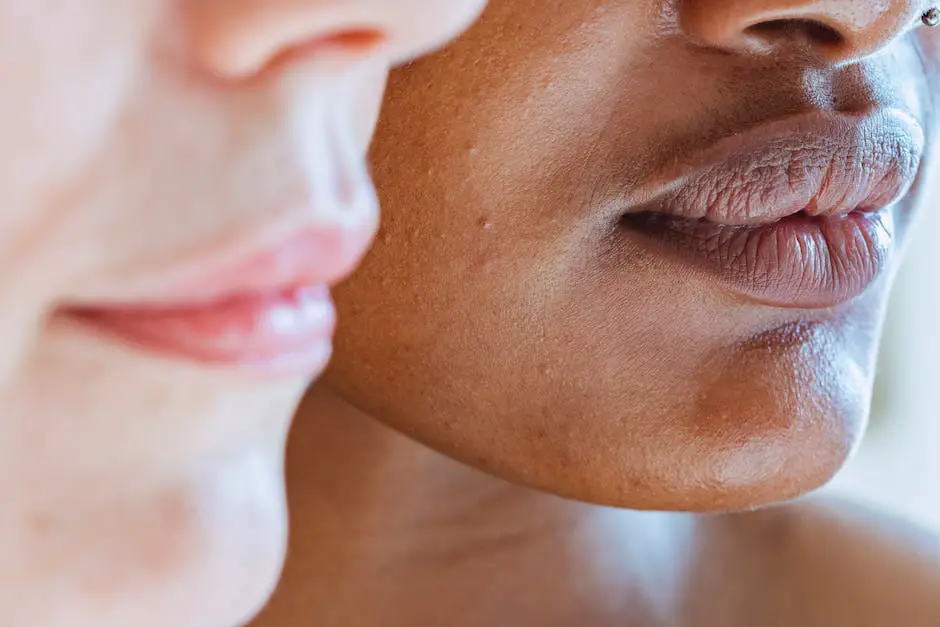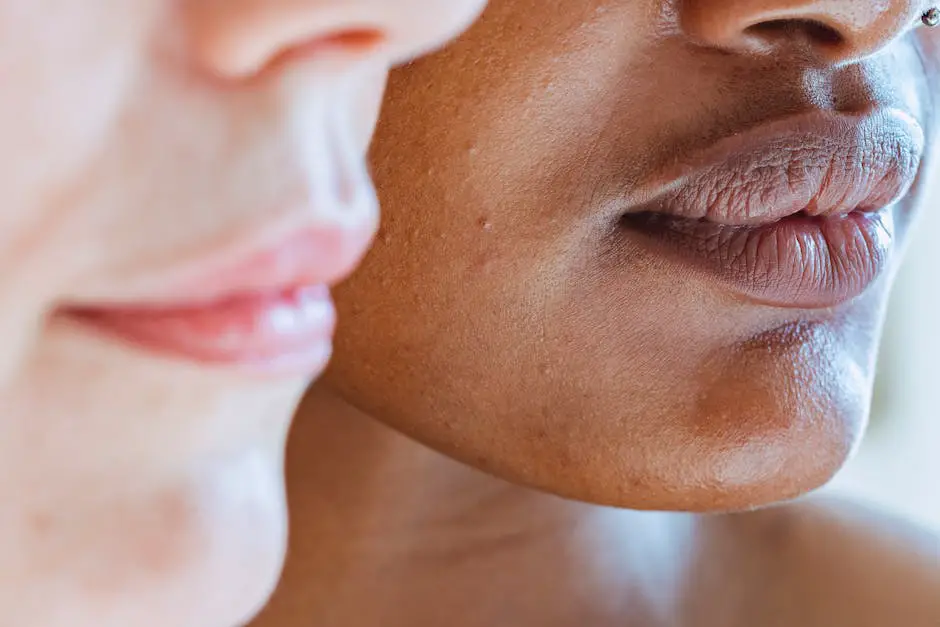The color, tone, texture, and general health of black skin is largely informed by the higher amounts of melanin it produces. This manifests in its distinct hue and a unique set of skincare needs and approaches. It’s not only an integral part of our identities, but also a canvas that reflects our overall health. As such, replenishing, protecting, and maintaining black skin often require strategic measures, ranging from selecting the right skincare products to incorporating the right dietary and lifestyle habits. Understanding the unique properties of black skin is the first pivotal step to cultivating a skincare routine that works for it. This exploration will guide us across the fundamentals of black skin care, as well as dietary and lifestyle practices that enhance its glow and health.

Understanding Black Skin
Understanding Black Skin Properties
Black skin produces more melanin, the pigment that gives the skin its color. This increased production not only defines skin tone but also contributes to the skin’s unique behaviour and needs. Melanin provides some protection against harmful UV rays but can also lead to skin conditions such as hyperpigmentation, characterized by dark spots or patches on the skin.
Skincare Routines for Black Skin
A dedicated skincare routine is necessary for maintaining the health and appearance of black skin. This routine typically includes cleansing, toning, moisturizing, and protecting the skin.
Cleansing
Start with a gentle, non-drying cleanser to remove dirt, oil, and makeup from the skin without stripping essential natural oils. Those who wear makeup or have more oily skin may benefit from double cleansing—first with an oil-based cleanser to dissolve makeup and sebum, followed by a water-based cleanser for a thorough clean.
Toning
After cleansing, use a toner to restore the skin’s pH level and hydrate it. Look for alcohol-free toners with natural ingredients such as witch hazel or aloe vera to reduce inflammation and irritation.
Moisturizing
Black skin often tends to be dry, making it important to regularly moisturize. Shea butter, coconut oil, or a high-quality moisturizer with hydrating ingredients like hyaluronic acid can help maintain the skin’s natural moisture balance and give it a healthy, radiant appearance.
Protecting the Skin
Despite the natural protection of melanin, black skin can still suffer from UV damage. Therefore, daily application of a broad-spectrum sunscreen of at least SPF 30 is vital for preventing sun damage and reducing the risk of hyperpigmentation and skin cancer.
Addressing Skin Issues
Black skin is prone to certain issues, such as dryness, hyperpigmentation, and acne. Regulating sebum production with oil-free or non-comedogenic products can help manage acne, while exfoliation can help treat and prevent hyperpigmentation by removing dead skin cells and promoting skin renewal. Products with ingredients like salicylic acid, glycolic acid, or lactic acid can be particularly beneficial. These acids help to clear pores, smooth the skin, and brighten dark spots.
Regular Checkups
Regular consultations with a dermatologist or skincare specialist can help identify any potential skin problems early and put together an effective personalized skincare routine. Remember, while this guide serves as a general starting point, everyone’s skin is unique and may require individual attention and care.

Essential Skincare Tips for Black Skin
Understanding Black Skin and Product Selection
Healthy black skin requires using appropriate skincare products. The high melanin content in black skin provides natural sun protection but it also makes it prone to hyperpigmentation and dark spots. Consequently, the choice of skin product becomes very important. Look for products that work gently on hyperpigmentation and dark spots without bleaching the skin, and ensure they contain natural ingredients without harsh chemicals. Expensive does not always mean better. Ultimately, the compatibility of the products with your specific skin type (oily, dry, combination, sensitive or normal) guides the selection.
The Importance of Regular Cleansing
Just like any other skin type, black skin benefits from daily cleansing. This helps remove dirt, excess oils and makeup that could clog the pores resulting in breakouts. If you have oily skin, find a non-comedogenic cleanser that doesn’t leave your skin feeling tight or dry after washing. For dry skin, a hydrating cleanser would be a good option. It is advised to wash your face twice daily, once in the morning to wash off the oils and sweat from your sleep, and once at night to remove makeup and the day’s grime.
The Role of Toning in Black Skin Care
After cleansing, toning is a vital step. A good toner restores the skin’s natural pH balance, helps close pores, and removes any lingering impurities. For black skin, look for toners without alcohol, as it dries out the skin. Ingredients like witch hazel, tea tree oil, rose water, or hyaluronic acid are helpful for balancing and hydrating the skin. Choose a toner that suits your skin type and sensitivity.
Why Moisturizing is Essential
Moisturizing is a crucial step in maintaining the skin’s health and preventing dryness. Even oily skin needs moisturizing as it helps balance the skin’s natural oils. For dry black skin, opt for oil-based moisturizers and for oily skin, go for water-based moisturizers. Ensure your moisturizer contains SPF to protect against harmful sun rays. If not, apply a separate sunscreen product with an SPF of at least 30.
Exfoliation: The Key to Brighter Skin
Exfoliation helps remove dead skin cells and unclogs pores, leading to brighter, smoother skin. Over-exfoliation can cause skin irritation and increase your skin’s sensitivity to the sun. For black skin, it’s recommended to exfoliate once or twice a week. Products with natural exfoliants, like sugar or oatmeal, can be gentler on the skin.
Don’t Ignore Sun Protection
Even though black skin has more melanin, which offers some protection against the sun, it does not mean that it can be ignored. Prolonged exposure to the sun can still cause skin cancer and speed up skin aging. Use a broad-spectrum sunscreen with high SPF regularly, even on cloudy days.
Adjusting Your Skincare Regimen
No skincare regimen is ever set in stone. Understand that your skin can change due to various factors like age, climate, and hormonal changes. Always listen to your skin’s needs and adjust your regimen accordingly. If a product starts causing discomfort or if your skin feels too dry or too oily, it might be time to change that product. Keep these guidelines in mind and remember, it’s about finding what best suits you to achieve beautiful, healthy black skin.

Nutrition and Lifestyle Habits for Healthy Black Skin
Balanced Diet for Healthy Black Skin
A balanced diet is far more beneficial to your skin than any skincare product could ever be. Incorporate healthy fats found in foods like avocados, fish, nuts and seeds, which are rich in omega-3 and omega-6 fatty acids. These fats will nourish your skin, giving it a natural glow and keeping it moisturized from within.
Include fruits and vegetables in your diet, with a focus on those rich in antioxidants such as berries, spinach, and carrots to help your skin fight off free radicals which contribute to premature aging. Eating plenty of citrus fruits, tomatoes, and strawberries can boost your vitamin C intake, which promotes collagen production, resulting in firmer, healthier skin.
Essential Vitamins and Minerals for Black Skin
Vitamin E is another skin-loving nutrient. Foods such as almonds, sunflower seeds, spinach, and broccoli are rich in vitamin E, which is essential for protecting your skin against sun damage and inflammation.
Zinc, selenium, and copper are other necessary minerals for black skin. Zinc helps your skin heal after injury, and is found in great amounts in red meat, poultry, beans, nuts and grains. Selenium, found in brazil nuts, fish, and eggs, protects against skin cancer, sun damage, and age spots. Copper aids in the production of skin-plumping collagen and elastin, and is found in shellfish, nuts, and red meat.
Hydration, Sleep and Exercise – The Three Pillars
Proper hydration is an undervalued factor in skin health. Consuming at least 2 liters of water a day helps in detoxifying the body and maintaining skin moisture levels, resulting in vibrant, healthy skin.
Getting an adequate amount of sleep, around 7 to 9 hours for most adults, is essential to allow the skin to regenerate and repair itself from the day’s damage.
Physical activity increases blood flow, helping to nourish skin cells by carrying oxygen and nutrients to them. Try to incorporate at least 30 minutes of moderate exercise into your daily routine.
Managing Stress for Better Skin Health
Stress affects your skin health both directly and indirectly. High stress levels can trigger skin problems such as acne, eczema, and psoriasis. Incorporate stress-reducing activities like yoga, meditation, and deep-breathing exercises into your daily routine. Also take time to pursue hobbies and activities that make you happy. Keeping stress levels low will not only help your skin but also promote general health.
Sun Protection for Black Skin
While melanin in black skin provides some natural protection against the sun, consistent use of a broad-spectrum sunscreen with an SPF of at least 30 is recommended. Similarly, wearing protective clothing and seeking shade can protect the skin from UV radiation, a significant cause of premature skin aging and some skin cancers.
Avoid Damaging Behaviours
Avoid smoking and limit alcohol consumption as these habits can have harmful effects on your skin. Smoking accelerates skin aging while excessive alcohol dehydrates the skin, making it dull and saggy over time.
Time and Consistency
Time and consistency are key when it comes to skincare. Incorporating these nutritional and lifestyle changes will not only promote healthy black skin but overall health and wellbeing.

Black skin, like any other skin type, thrives on a well-rounded approach that incorporates both topical treatments and lifestyle adjustments. The synergy of these approaches not only ensures that black skin looks good but also feels good. Remember, healthy skin is not a one-time event, but an ongoing process that requires consistency and a commitment to learning and understanding your skin’s unique needs. As we embrace the beautiful diversity of our skin, let’s also remember to nourish it with the kindness and care it deserves. The keys to unlocking healthy, beautiful black skin are within your grasp. Combine them with your understanding, respect, and love for your skin, and you’ll unlock a radiant, healthy, and confident you.

Leave a Reply